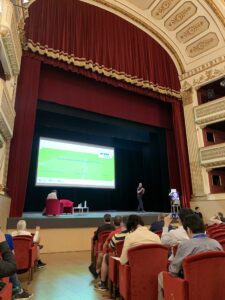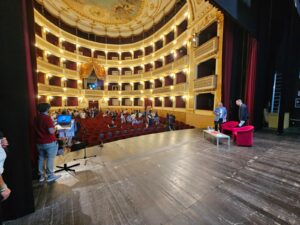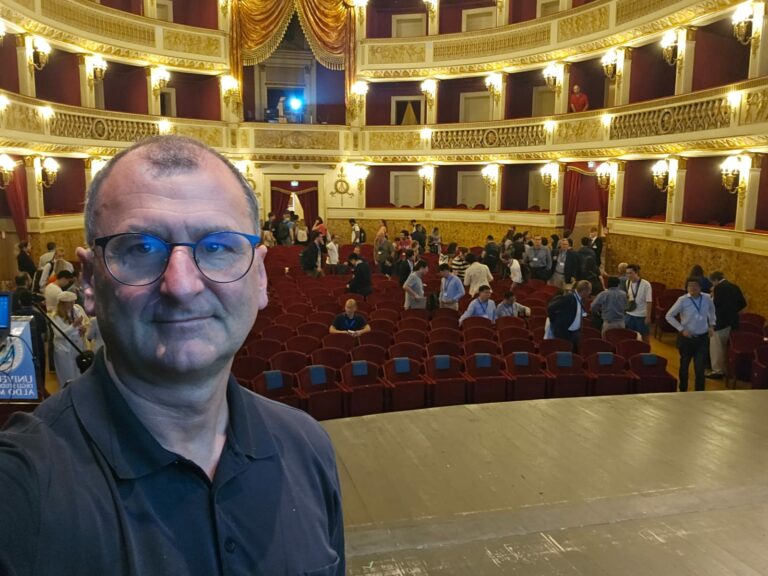Greetings from the heart of the 16th European Conference on Molecular Electronics (ECME) 2023, currently underway in the beautiful city of Bari, Italy! Joining Christoph Brabec on this the stage at the splendid Teatro Piccinni in Bari. are eminent figures in the field, including the esteemed Prof. Natali Stingelin and the renowned Prof. Iain McCulloch. ECME 2023 is a testament to the power of collaboration and shared knowledge.

Illuminating the Path with Digital Twins in Molecular Electronics
Christoph’s talk revolves around the concept of Digital Twins, a visionary solution that holds immense potential. This approach integrates machine learning techniques from materials acceleration platforms (MAPs), mathematical models rooted in physics, and the idea of digital twins derived from engineering. Together, these elements facilitate high-throughput experimentation, enabling the refinement of quantum chemical and solid-state models. The outcome is a profound understanding of molecular structure-property relationships, opening the door to the exciting prospect of inverse molecular design. This means predicting optimal molecular structures and process conditions to create devices that meet multiple criteria simultaneously.

Christoph Brabec’s presentation is about the progress made possible by a team effort, including co-authors and fellow FAU Solar members: Larry Lüer, Marius Peters, Ana Sunčana Smith, Eva Dorschky, Bjoern M. Eskofier, Frauke Liers, Jörg Franke, Dirk Guldi, Andreas Maier, and Christoph J. Brabec himself.
More details on ArXiv
Follow us on X

Greetings from the heart of the 16th European Conference on Molecular Electronics (ECME) 2023, currently underway in the beautiful city of Bari, Italy! Joining Christoph Brabec on this the stage at the splendid Teatro Piccinni in Bari. are eminent figures in the field, including the esteemed Prof. Natali Stingelin and the renowned Prof. Iain McCulloch. ECME 2023 is a testament to the power of collaboration and shared knowledge.
Illuminating the Path with Digital Twins in Molecular Electronics
Christoph’s talk revolves around the concept of Digital Twins, a visionary solution that holds immense potential. This approach integrates machine learning techniques from materials acceleration platforms (MAPs), mathematical models rooted in physics, and the idea of digital twins derived from engineering. Together, these elements facilitate high-throughput experimentation, enabling the refinement of quantum chemical and solid-state models. The outcome is a profound understanding of molecular structure-property relationships, opening the door to the exciting prospect of inverse molecular design. This means predicting optimal molecular structures and process conditions to create devices that meet multiple criteria simultaneously.
Christoph Brabec’s presentation is about the progress made possible by a team effort, including co-authors and fellow FAU Solar members: Larry Lüer, Marius Peters, Ana Sunčana Smith, Eva Dorschky, Bjoern M. Eskofier, Frauke Liers, Jörg Franke, Dirk Guldi, Andreas Maier, and Christoph J. Brabec himself.
More details on ArXiv
Follow us on X